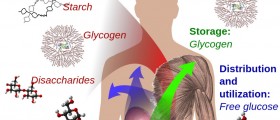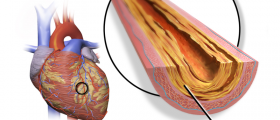
What is insulin resistance?
In order to understand what the insulin resistance is, it is necessary to know that insulin is a hormone that is secreted by the cells in pancreas and that is important for the metabolism of carbohydrates, fats and proteins. Besides these functions, insulin performs several others that are also important, and one of them is related to the growth of the body cells. So, if a person is diagnosed with insulin resistance, it means that the cells of the body have become resistant to the insulin and its effect, and they do not respond as they should. This means that, in order to perform all the important functions that are related to insulin, our body needs increased levels of this hormone.
Insulin resistance may refer to the insulin that our body produces, but it may also refer to the injected form of insulin. As for the causes of this condition, so far several have been identified and among the most frequent are certain medications, obesity, pregnancy, some severe infections and illnesses, the use of steroids, and even stress.
What are the main symptoms of insulin resistance?
Many symptoms may indicate insulin resistance, but in order to diagnose it, it is necessary to go through physical examination and several laboratory tests. Also, besides checking the patient’s medical history, the doctor will ask about the symptoms, since their presence will help in setting the diagnosis. So, if a person complains about feeling tired, fatigued, or worn out, either in the morning, or throughout all the day, it may be the firstsign.
Problems with memory and concentration may also indicate insulin resistance, as well as low blood sugar levels that are not only typical during the day but are present for a longer period of time, increased weight, blood pressure and levels of triglycerides, sleepiness and even depression and moodchanges.
People who are a bit more at risk of developing insulin resistance are those who are overweight and have BMI over 25, those who are over 40 years old, those who suffer from high blood pressure, high level of triglycerides and low lever of HDL cholesterol or arteriosclerosis. Still, if a person has gestational diabetes, polycystic ovarian disease, or if type 2 diabetes runs in the family, he or she is also much more likely to develop this condition, which is why it is necessary to be even more attentive about the symptoms.

















Your thoughts on this
Loading...